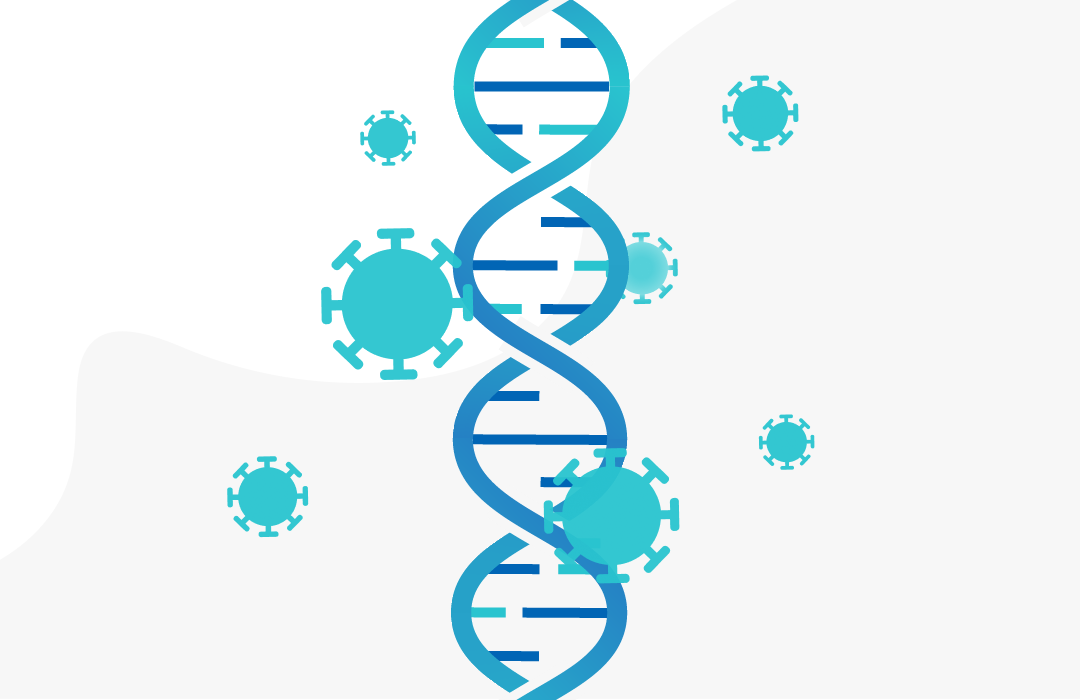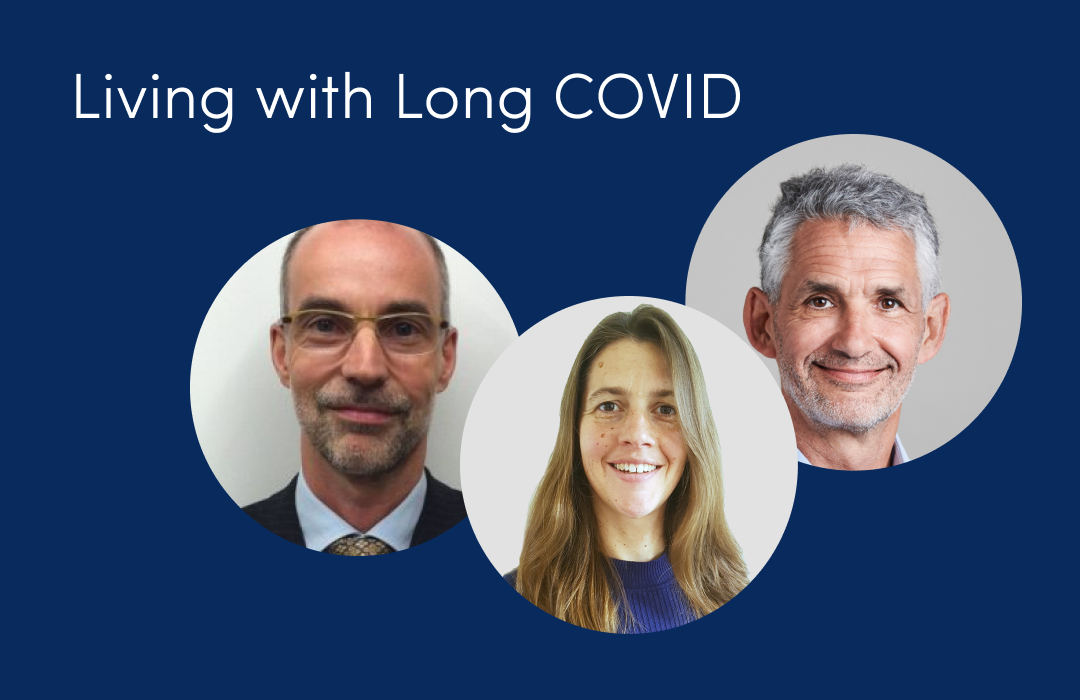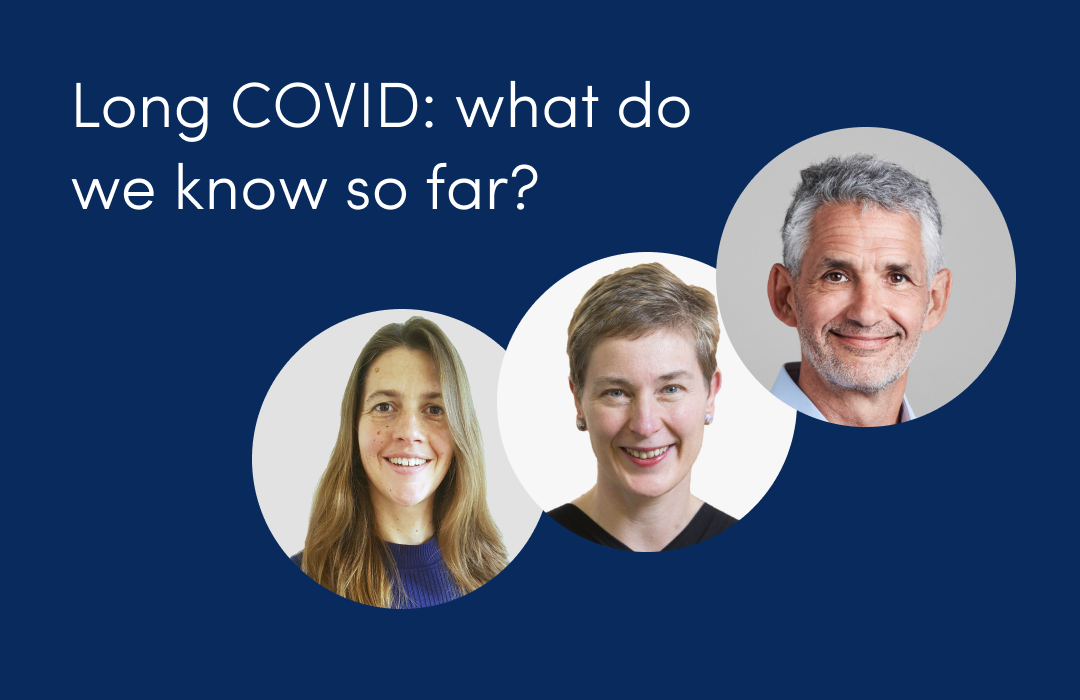
Are COVID-19 vaccines safe for people with weakened immune systems? And will they work?
March 2, 2021

This article has not been updated recently
Many of you have asked whether the vaccines are safe and effective for immunocompromised or immunosuppressed people in our expert vaccine webinars.
To find out more about immunosuppression and COVID-19 vaccines, we spoke to Professor Ellie Barnes, an expert in immunology from Oxford University, and member of the UK Coronavirus Immunology Consortium.
We’ll also be hearing more from Ellie in our expert webinar on 3rd March at 4pm GMT - register for free now to watch live or catch up later on our YouTube channel.
Why do some people have weakened immune systems?
“You can be immunosuppressed because of an underlying illness, or you can be immune-suppressed because of drugs that you're taking for your disease,” says Ellie.
“There are lots of immune-suppressing therapies that are being used across different disease spectrums, from autoimmune conditions through to cancer treatment.”
This can include:
- People with auto-immune conditions (e.g. lupus, rheumatoid arthritis, multiple sclerosis, inflammatory bowel disease, Crohn’s disease)
- People with genetic conditions that impact their immune system
- People with chronic diseases such as liver or kidney disease, and people with cancer
- People who have received an organ or bone marrow transplant
What issues can vaccines cause for people who are immunocompromised?
Vaccines are a kind of ‘training programme’ for the immune system, teaching it to recognise and respond to harmful bacteria and viruses (pathogens) when we encounter them in the real world.
There are several different types of vaccines. Some use small parts or molecules from a virus or bacteria while others use genetic material (DNA or mRNA) encoding one of these parts. And so-called ‘live vaccines’ use a weakened form of the original harmful pathogen.
Although many vaccines are usually safe for people who are immunosuppressed, People who are severely immunocompromised are sometimes advised to avoid live vaccines, because even the weakened virus can make them very sick.
Another issue is that sometimes people with suppressed immune systems will not have a large enough immune response to a vaccine to protect against the real pathogen. For example, a recent study showed that the 2018 flu vaccine was less effective in immunocompromised people.
Are the COVID vaccines safe for people who are immunocompromised?
There are currently two COVID-19 vaccines in use in the UK: the Oxford/AstraZeneca vaccine and the Pfizer vaccine. Find out more about how the different vaccines work in our blog post.
“Neither of these are live vaccines. And because of that, there's no theoretical reason why these vaccines would not be completely safe, even for people who are severely immunocompromised,” Ellie explains.
“The Pfizer mRNA vaccine is a piece of RNA that codes for a spike protein. It is taken up into your cells, which then make the spike protein and your immune system reacts to that. So there's no virus involved with that at all,” she says.
There has been some confusion around the Oxford/AstraZeneca vaccine because it uses a harmless cold virus called an adenovirus to carry the RNA to cells. The adenoviruses that carry the vaccine cannot replicate in your cells or cause disease, and the vaccines do not contain live COVID-19 viruses, so they are safe for people with weakened immune systems.
“These vaccines have been shown to be very safe,“ says Ellie. “There's no reason why an immunocompromised person would have a different adverse effect profile, compared to a healthy person after receiving a COVID-19 vaccine.”
Some people have experienced severe allergic reactions after having the jab, but this side effect is extremely rare, and not expected to be more likely in immunocompromised people. If you have severe allergies, you should speak to your doctor or vaccination team before having a COVID-19 jab.
Will COVID-19 vaccines still work for immunosuppressed or immunocompromised people?
Although Ellie is confident that the vaccines are safe for immunocompromised people, she cannot yet give any assurances that they will provide adequate protection against COVID-19.
“The phase three vaccines studies generally recruited healthy people and excluded people with severe disease and immunosuppressive therapy,” she says. “Although it’s likely that vaccines can provide some level of protection for people who are immunocompromised, right now we don’t have any solid data on how well COVID-19 vaccines will work in people with weakened immune systems.”
To find out, Ellie and her colleagues across the country are running a new trial called OCTAVE measuring the immune responses of immunosuppressed people after receiving a COVID-19 vaccination. They are also monitoring the after effects and effectiveness of the jab in trial participants.
I’m immunocompromised, should I get a COVID-19 vaccine?
The British Society for Immunology has released a statement on COVID-19 vaccines for patients who are immunocompromised or immunosuppressed. They say:
“While COVID-19 vaccination might provide a lower level of protection in people who are immunosuppressed or immunocompromised compared with the rest of the population, it is still very important that you get vaccinated as it will offer you a certain amount of protection against catching COVID-19. It is important that you receive two doses of the vaccine to maximise the protection that vaccination offers you.
“COVID-19 vaccination will work best if you have a functioning immune system. It’s important to remember that the COVID-19 vaccines can protect you from getting seriously ill with COVID-19, although if your immune system isn’t functioning optimally this protection will not be complete.”
“The vaccines will not harm you, and they may give you some protection,” says Ellie. “So my advice to patients currently is: if you're offered a vaccine, take it.”
If you are worried about your specific circumstances, contact your GP to discuss your options. There is also lots of information available from disease-specific charities and patient groups regarding immune suppression and vaccination (we have included some relevant links below).
We can all play our part in protecting others
If you aren’t immunosuppressed, you can help people with weakened immune systems by accepting a vaccine yourself when you are offered one. This will help decrease the incidence of COVID-19 in the population and make the risk of catching the disease smaller for everyone.
Importantly, we still don’t know how effective the vaccines are at stopping people from passing on coronavirus, even if they don’t become ill (asymptomatic transmission). So when you’ve had your vaccine, it’s still important to continue protecting yourself against COVID-19, especially if you’re immunocompromised.
“People who are immunosuppressed should continue to follow their GP’s and government advice around shielding and other precautions - none of that changes for now,” says Ellie.
When you’ve had a COVID-19 vaccine, be sure to log it in the ZOE COVID Symptom Study app to help us understand the impacts of vaccination for everyone, including immunosuppressed people.
Stay safe and keep logging.
Find out more:
- British Society for Immunology statement on COVID-19 vaccines for patients who are immunocompromised or immunosuppressed
- British society for Immunology - A guide to COVID-19 vaccines
- Coronavirus vaccine for people with Crohn’s or Colitis
- MS and the COVID-19 vaccines
- Vaccines for COVID-19 – your questions answered (Versus Arthritis)
- Coronavirus (COVID-19) vaccine and cancer
- Update for people with liver disease on the Covid-19 vaccine
- COVID-19 vaccines and primary immunodeficiencies
- Lupus and COVID-19 Vaccination












.png)


.jpg)














.png)







%202.png)
.png)


















.png)






